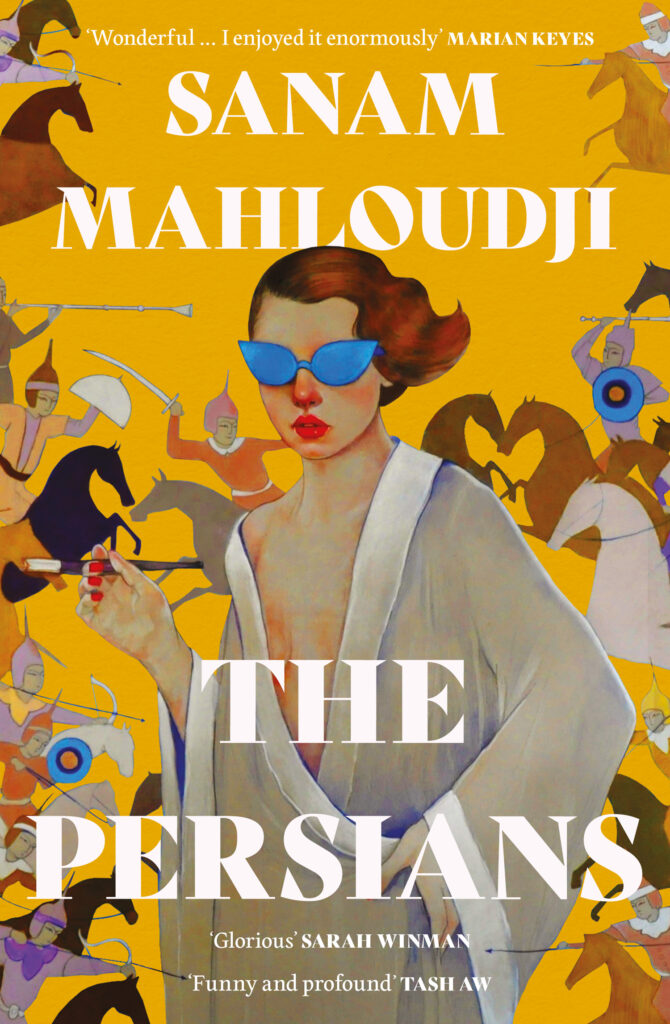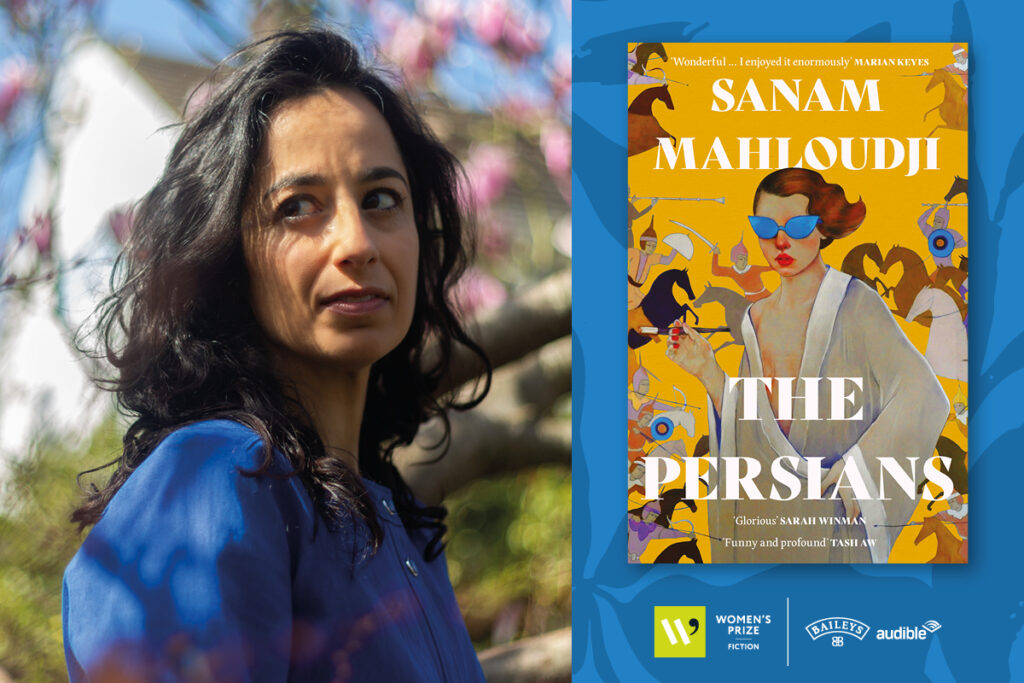Sanam Mahloudji’s The Persians employs sharp humour to tell the story of a family separated by the fall of the Shah, who struggle to regain their status in exile.
Shortlisted for the 2025 Women’s Prize for Fiction, judge Diana Evans says: ‘This polyphonic novel is brimming with larger-than-life characters from a fallen Iranian dynasty absconded to comparatively grotty America. Rich in Persian history and old-world glamour, while at the same time depicting modern life across two nations, it’s funny, gutsy and confidently written using shifting voices and modes of story-telling. An outstanding debut.’
To find out more about the book we spoke to Sanam about her inspirations, writing process and favourite books.
How would you describe your book to a new reader?
Five women from an Iranian family that once mattered grapple with how to find themselves and each other in an epic tragicomic story that spans 70 years and travels back and forth between Iran and the United States exploring love, loss, family, money, art and revolution.
What was the idea that sparked your novel?
I wrote a short story called Auntie Shirin which was published in McSweeney’s Quarterly in 2018. Shirin is a flamboyant, over-the-top woman who came from a once-illustrious family but refuses to accept the decline in status. I wondered what could crack her open. Sometimes the worst thing you can imagine might not end up being the worst. In Shirin’s case this was being thrown in jail for attempted prostitution during an annual family vacation in Aspen, Colorado in 2005.
I couldn’t forget the characters I introduced in this story. I had an image of Shirin’s distracted mother, Elizabeth, wearing sunglasses, ashing a cigarette out her convertible, speeding to pick up her children from school in Tehran in the 1960s… and then also her sister Seema, a smart but lonely girl who liked to sleep beside her grandmother in an old horsehair bed. Already I was attached to finding out what would happen with the lost law student Bita who bailed Shirin out of jail, the point of view character in Auntie Shirin. I wanted to know everything about these characters. Why they acted the way they did, what their problems were – I had some initial ideas. Soon I realised I had a whole family and history and culture I wanted to write about, and it was something that I could only do in a novel. It also became the perfect vessel in which to explore my complicated political and personal, and even philosophical, feelings about the United States and Iran, about immigration and diaspora, as well as my otherwise hard-to-articulate feelings about family and self.
Which part of the book did you write first? Was there a moment that clicked a lot of things in place or where you felt the strands of the book started to come together?
I basically had the first chapter in the short story Auntie Shirin. The way I started writing the book was by seeing what the different characters from the short story were up to. Only one character wasn’t in the short story, but I knew she needed to exist: Shirin’s daughter Niaz, who Shirin left behind in Iran. When I had the five voices, at first I wrote the book in cycles… in other words, I would cycle through each of the five voices in order, and then start over. At some point, I learned I couldn’t be so rigid and that the overall story that was making itself known to me needed to dictate the direction and momentum and voice of the chapters.
I don’t remember if there was a single moment, but the last line for the book appeared to me very early on, and I knew it was exactly what it needed to be. Even though I had yet to discover what would happen in the book, I wonder if having that last line helped me unconsciously to pull things together and propel me forward.
Which part of the book was the most fun to write? Which was the most challenging?
I especially loved writing the later chapters in the books where the women are largely in one another’s chapters, and when they have their big long-awaited reunion. By then, I knew each woman so well that it was really fun to just put them in a room together and see what would happen. Of course I wouldn’t use everything I’d write, but it was like I’d lit the match and now I got to watch the whole fireworks display. There was an element of magic and mystery to it then where the writing felt beyond me.
It wasn’t a part necessarily, but I felt that I needed to keep the whole book in my head when I wrote, and with five point of view characters and different timelines that was tricky at times, especially if I took a long break from writing. I had to reread the book while I was writing so many times so that I’d feel like I was in control of the entirety of it as I wrote – or at least that it was inside me so that when I would write, the correct words or images might come out. It was in a way too big for me to sometimes understand how it was working–which was exhilarating, but also frightening.
What is the best piece of writing advice you have ever received?
Take it seriously. A writer I have a lot of respect for told me that at the exact time I needed to hear it.
Which female author would you say has impacted your work the most?
I don’t know if I can say who has impacted my work the most, but I know that both Clarice Lispector and Ottessa Moshfegh’s work has played a certain irreplaceable role.
What is your favourite book from the Women’s Prize library and why?
One book I love very much is The Idiot by Elif Batuman which I read only this year for the first time. I want to be best friends with the main character, Selin. The book made me laugh and think on every page. I love the tone and humor and perceptiveness. Batuman’s prose is uncompromising and startling. I also found a few similarities in our joke-telling, and wondered if it was because we are the same age and originally from the same section of the world (her Turkey to my Iran).
Could you reveal a secret about your creative process?
A long walk in nature while listening to music, allowing myself to dance or bounce and feel the music as I walk does something to my brain so that I forget my worries, life feels infinite, and things that are fuzzy become clear, ideas and answers fall to me as if from the sky.









